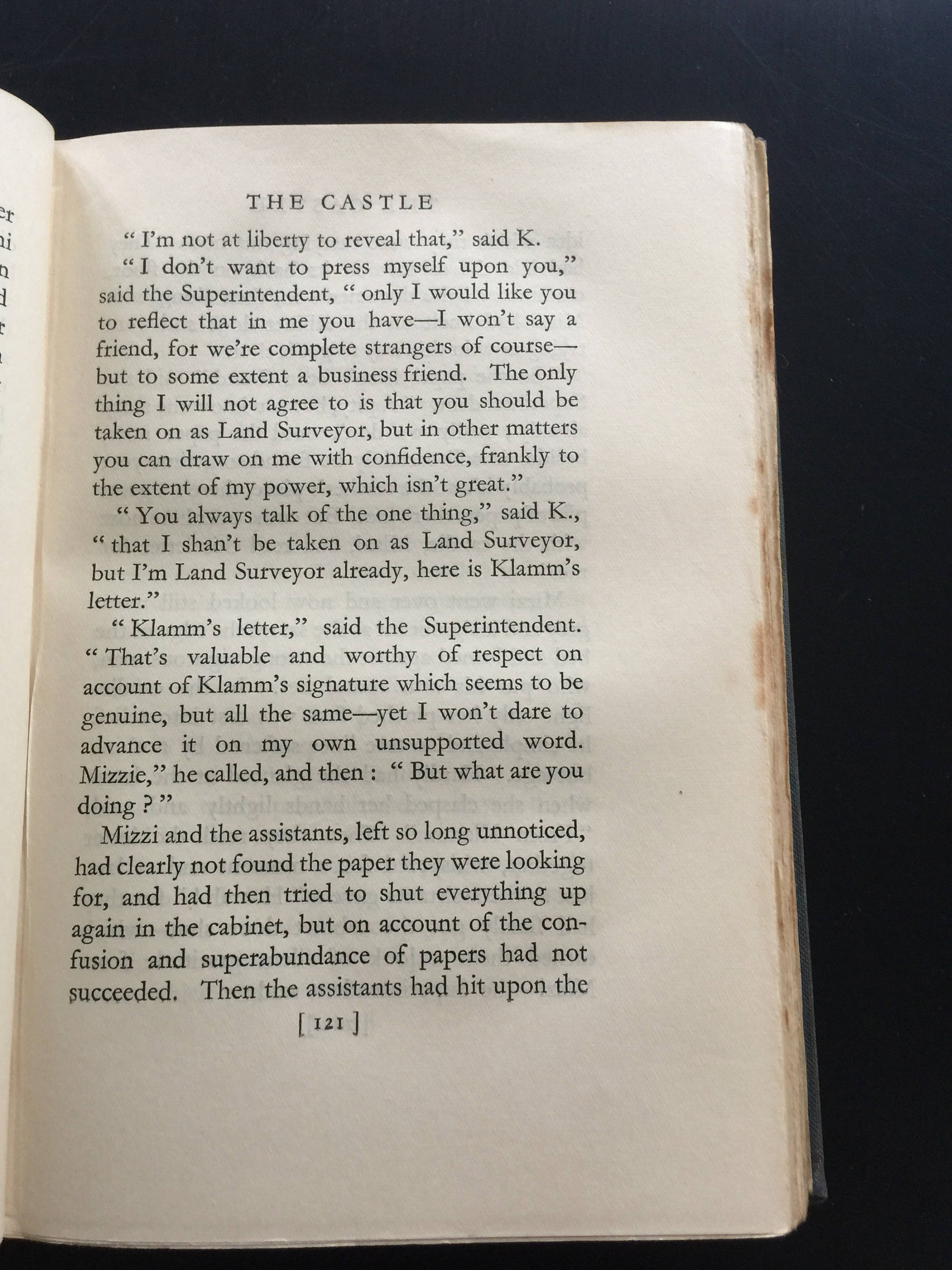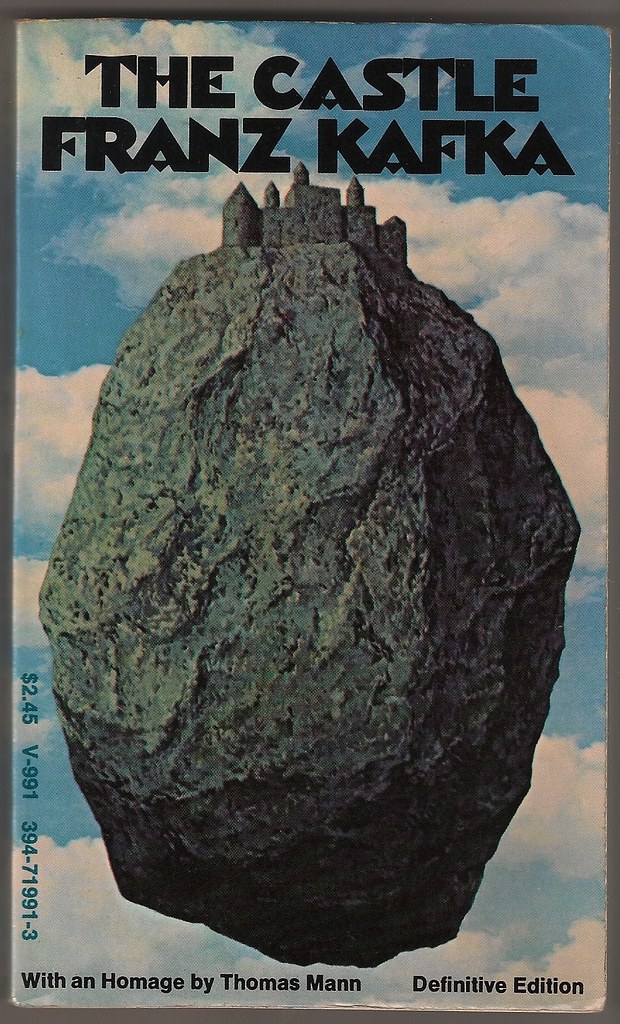
An ailing Kafka wrote to Max Brod (1884–1968), editor of his major works published after Kafka’s death: “I have not spent this week very cheerfully because I have had to give up the Castle story, evidently for good.” The novel ends in mid-sentence. when she discovers that he is merely using her.Īs is the case with all of Kafka’s major works, The Castle was never finished, but in this instance it would seem that death itself forced the truncation. makes love to the barmaid Frieda, a former mistress of Klamm.

His assistants, Arthur and Jeremiah, are not helpful. wants to meet Klamm, the castle superior.

arrives at a village and claims to be the officially appointed land surveyor to the Castle, a mysterious domain that rules over the village: “The Castle hill was hidden, veiled in mist and darkness, nor was there even a glimmer of light to show that the castle was there.” The novel proceeds in a manner that falls somewhere between bewilderment and burlesque. The story of The Castle is roughly as follows: Joseph K.

A customarily Kafkaesque yoking of the absurd and the sinister, The Castle depicts an individual’s fruitless efforts to achieve his objective within an incomprehensible authoritative structure. Kafka began to write the book in 1922 in a village and not, as it is tempting to imagine, in the shadow of Prague’s legendary castle. The Castle is the last novel written by Czech author Franz Kafka (1883–1924).


 0 kommentar(er)
0 kommentar(er)
